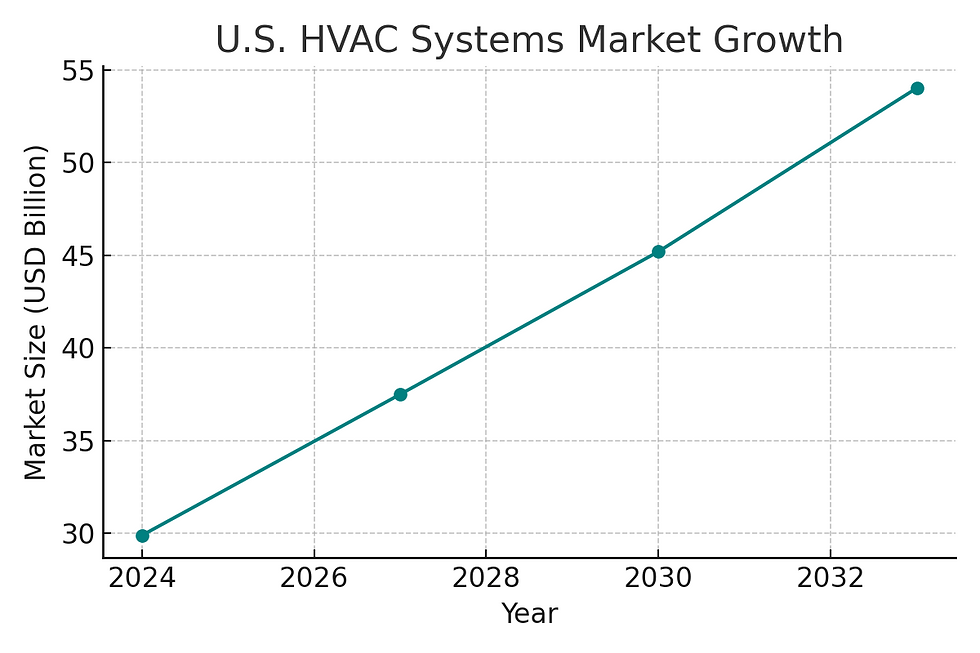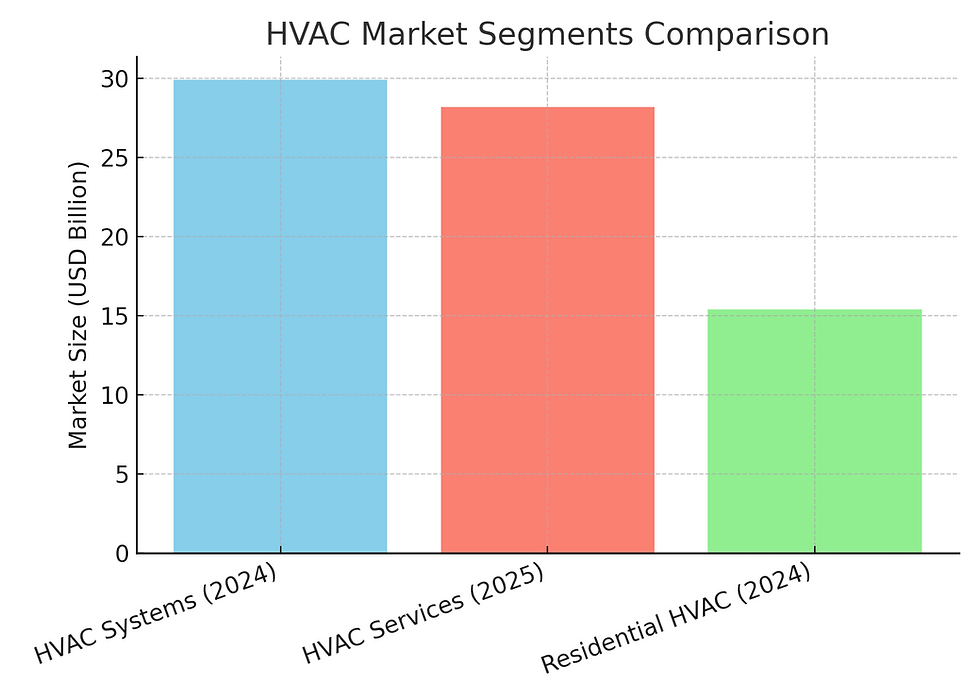AC Installation Norwell Expert Services for Efficient Cooling Solutions
- Vanshika Thareja

- Jul 24
- 10 min read

AC installation in Norwell requires professional expertise to ensure the system is properly sized and efficiently installed for the home’s needs. Choosing a licensed technician guarantees that the equipment fits the space, operates reliably, and maximizes energy efficiency. Quality installation directly impacts comfort and helps avoid costly repairs or inefficiencies later on.
Norwell’s climate demands an air conditioning system that can handle both humid summers and colder months, making proper installation essential. Technicians in the area typically offer services that cover not only installation but also maintenance and repair, ensuring the system performs well year-round.
Homeowners benefit from selecting experienced contractors who understand local conditions and offer energy-efficient options tailored to the property. This approach ensures the system delivers consistent cooling while managing energy costs effectively.
Understanding AC Installation in Norwell
Installing an air conditioner in Norwell requires attention to local climate, energy efficiency, and home layout. Homeowners must consider system types, proper installation techniques, and factors influencing performance and cost to ensure comfort and savings.
Why Proper Air Conditioner Installation Matters
Proper AC installation in Norwell ensures the system operates efficiently and lasts longer. Incorrect installation can lead to increased energy consumption, uneven cooling, frequent breakdowns, and costly repairs. Licensed technicians follow manufacturer guidelines and local codes to optimize unit performance.
A well-installed system also improves indoor air quality by maintaining appropriate airflow and humidity levels. In Norwell, where summers can be warm and humid, accurate sizing and precise setup protect the investment and keep homes comfortable year-round.
Additionally, professional installation comes with warranties and service guarantees, which provide peace of mind and protect against unexpected issues.

Common Types of Air Conditioning Systems
Norwell homeowners typically choose from several popular AC system types based on home size and cooling needs:
Central Air Conditioners: Most common for full-house cooling, using ductwork to distribute conditioned air.
Ductless Mini-Split Systems: Ideal for homes without ducts or for zoning specific rooms.
Heat Pumps: Provide both heating and cooling, suitable for moderate climates.
Window Units: Cost-effective for individual rooms but less efficient for whole-house use.
Each system type has different installation requirements and cost implications. Professionals assess the home’s existing structure and energy goals to recommend the best fit.
Key Considerations for Norwell Homeowners
Norwell residents must consider several factors when installing an AC system to balance comfort, cost, and efficiency.
System Sizing: Proper sizing avoids overworking the unit or inadequate cooling. Professionals perform load calculations based on square footage, insulation, and sun exposure.
Energy Efficiency: Installing ENERGY STAR® rated units reduces utility bills and environmental impact.
Local Climate: Systems must handle Norwell’s humid summers effectively.
Permits and Codes: Compliance with local building codes and obtaining necessary permits is essential.
Service and Maintenance: Selecting installers offering affordable HVAC service with maintenance plans helps prolong system life.
Prioritizing these ensures a reliable, cost-effective cooling solution tailored to Norwell homes.
Selecting the Right AC System
Choosing an air conditioning system requires understanding how well it fits the home’s size, the efficiency it offers, and the reliability of various brands. These factors directly impact comfort, energy bills, and long-term performance.
Evaluating Home Size and Cooling Needs
The size of the home determines the capacity of the AC unit needed. An undersized unit will struggle to cool properly, while an oversized system causes unnecessary energy use and short cycling.
A common rule is to calculate cooling capacity in BTUs (British Thermal Units) based on square footage. For example, a typical estimate is about 20 BTUs per square foot. Additional factors include insulation quality, window placement, and sunlight exposure.
In Norwell, where temperatures can vary, choosing the correct size ensures consistent comfort year-round. A professional assessment is recommended to consider these specifics and avoid mis-sizing.
Energy Efficiency and Ratings
Energy efficiency is measured mainly by SEER (Seasonal Energy Efficiency Ratio). A higher SEER number means better efficiency and lower energy bills.
In Massachusetts, standards encourage systems with SEER ratings above 14 for new installations. Some high-efficiency units reach SEER ratings of 20 or more.
Energy Star certification is also a reliable indicator of efficiency. Homeowners should look for units with Energy Star labels to ensure they meet strict performance standards.
Ductless mini splits and central air conditioners often differ in efficiency depending on the model. The correct choice balances upfront cost with long-term savings.
Comparing Popular AC Brands
Popular brands like Bryant, Carrier, and Trane offer a range of models suited for different needs and budgets. Bryant is well-regarded for its reliability and solid warranty coverage.
Bryant air conditioners combine good price points with energy-efficient options, making them a solid choice for typical Norwell homes.
Other brands may offer features such as advanced filtration, quieter operation, or smarter thermostats. It is important to compare specs alongside factors like availability of local service and parts.
Choosing a trusted brand supported by experienced Norwell HVAC contractors ensures proper installation and ongoing support.
AC Installation Process in Norwell
AC installation in Norwell involves careful planning, precise execution, and adherence to local regulations. The process ensures the system is efficient, properly sized, and compliant with building standards.

Pre-Installation Inspection and Assessment
Technicians begin with a thorough inspection of the property. This includes evaluating the current ductwork, measuring the space, and noting insulation levels. Proper sizing of the AC unit is critical to avoid under- or over-conditioning.
They also assess electrical capacity and existing HVAC components to ensure compatibility. Customer preferences and specific cooling needs are discussed to select the optimal system type. This step prevents potential issues during installation and ensures system efficiency.
Installation Steps and Timeline
The installation typically starts with the placement of the outdoor condenser unit and indoor air handler or furnace connection.
The process includes:
Installing refrigerant lines and electrical wiring
Setting up thermostat controls
Conducting pressure and leakage tests
Calibrating the system for optimal performance
A standard installation often takes one to two days depending on system complexity. Technicians work to minimize disruption while ensuring all components are securely installed and tested.
Meeting Local Building Codes
Compliance with Norwell’s local building codes is mandatory. Installers verify permits and perform work that meets state energy efficiency standards and safety regulations.
This includes proper refrigerant handling, electrical connections, and ventilation requirements. Documentation and inspection approvals are part of the process to ensure legal and functional integrity. Following these rules avoids fines and guarantees homeowner safety.
Cost Factors for AC Installation
Several factors influence the overall expense of installing an air conditioning system in Norwell. These include the initial costs directly related to installation, potential savings from energy-efficient models, and available financing or rebate options that can reduce upfront financial burdens.
Upfront Installation Costs
Initial expenses for AC installation vary based on several key factors. The size of the home, type of AC system chosen (central, ductless, etc.), and the complexity of the installation process all directly affect price.
In Norwell, typical costs for a central air system on a 1,000 to 1,200 sq ft home range from $3,500 to $7,000. Labor costs vary locally and may include permit fees. Additional charges may apply if ductwork needs repair or replacement.
Choosing an affordable HVAC service with certified technicians can help manage these costs. It ensures proper installation without sacrificing quality, which is essential for system longevity and performance.
Long-Term Savings from Efficient Systems
Investing in energy-efficient AC units can reduce electric bills significantly over time. Units with higher SEER ratings often cost more upfront but deliver better cooling performance and use less energy.
Efficiency can also lower maintenance costs. Newer models may include features to improve air quality and humidity control, enhancing comfort without major additional expenses.
Homeowners should consider potential savings in energy consumption before deciding on the initial investment. The right system tailored to home size and climate will balance upfront cost with operational efficiency.
Financing and Rebates
Many Norwell homeowners can access financing options to spread out the cost of installation. Plans through lenders or HVAC service providers often offer low or no interest, making high-efficiency systems more accessible.
Rebates from manufacturers, utility companies, or government programs can reduce the cost further. These incentives sometimes require specific equipment models or professional installation by certified services.
Before starting a project, checking eligibility for rebates and financing deals is recommended. This can lower financial barriers and encourage upgrading to a more efficient, reliable AC system.
Choosing a Reliable AC Installation Company
Selecting the right company for AC installation in Norwell requires attention to specific factors that ensure quality, safety, and long-term satisfaction. Important considerations include verifying professional qualifications, examining local reputation, and understanding service guarantees.
Credentials and Certifications
A reputable AC installation company in Norwell will hold proper licenses and certifications. These credentials prove the technicians have met industry standards and comply with safety regulations. Licensed professionals also have the training needed to install systems correctly, reducing the risk of future repairs or inefficiencies.
Look for certification from recognized bodies such as NATE (North American Technician Excellence) or EPA (Environmental Protection Agency) certification for handling refrigerants. Certified companies show consistent adherence to best practices and updated technical knowledge. This ensures installations use the right equipment size and follow manufacturer guidelines.
Customer Reviews and Local Experience
Customer reviews provide insight into a company's reliability and service quality in Norwell. Positive feedback from local homeowners often highlights responsiveness, workmanship, and professionalism. Consistent 5-star ratings or testimonials reflect the company’s ability to meet expectations in timing and performance.
Local experience also matters because technicians familiar with Norwell’s climate and building codes can recommend suitable systems. Companies serving the area for several years often understand common challenges and deliver solutions tailored to local needs. Checking multiple review sources helps confirm a company’s standing.
Warranty and Service Agreements
A reliable AC installer offers clear warranty coverage on both equipment and labor. Warranties protect the homeowner from unexpected damages or defects following installation. The most trustworthy companies include manufacturer warranties supplemented by their own service guarantees.
Service agreements can extend beyond installation to cover routine maintenance and repairs. These contracts may lower costs over time and ensure prompt support when issues arise. Understanding the terms of warranties and service plans before committing helps prevent surprises after installation is complete.
Comparing AC Installation in Nearby Areas
AC installation options in areas surrounding Norwell vary in service scope, equipment choices, and technician availability. Each location caters to specific residential and commercial needs, with differences in pricing and energy efficiency solutions.
AC Installation Services in South Duxbury
South Duxbury offers several providers specializing in residential AC installation. Technicians here focus on energy-efficient models due to local preferences for sustainable solutions. Many companies provide free estimates and detailed consultations to ensure proper system sizing.
Customers in South Duxbury often benefit from faster response times and personalized service. Installation packages typically include maintenance plans, helping homeowners extend the life of their systems. Competitive rates are common due to the area's growing demand for HVAC upgrades.
AC Installation in Kingston and Marshfield Hills
Kingston and Marshfield Hills share similarities but differ slightly in AC service options. Kingston features a mix of established contractors and newer businesses, offering broad equipment choices from basic units to high-efficiency systems with smart technology.
Marshfield Hills leans toward premium service with a focus on customer satisfaction and warranties. Installers often emphasize proper ductwork assessments and energy audits to optimize cooling performance. Both towns support certification requirements, ensuring technicians are licensed and trained.
Differences Between Norwell and Middleborough Center
Norwell’s AC installation market is characterized by a balance between affordability and quality, with several reputable companies offering certified technicians. Energy efficiency and seamless installation processes are common selling points.
Middleborough Center, while having fewer providers, tends toward larger-scale commercial installations. The pricing structure can differ with an emphasis on robust systems for bigger spaces. Residential customers might face longer wait times but often receive tailored solutions for complex setups.
Long-Term Care and Maintenance
Proper care ensures an AC system runs efficiently and lasts longer. Regular upkeep prevents costly repairs and maintains air quality and energy savings over time.
Seasonal AC Maintenance Tips
Before warm months, clear debris from around the outdoor unit to allow proper airflow. Checking and replacing air filters every 1-3 months keeps the system clean and improves performance.
Inspecting coolant levels and sealing leaks maintains cooling strength. Cleaning evaporator and condenser coils prevents dirt buildup that reduces efficiency.
Scheduling a professional tune-up annually helps spot early issues and maintain system health. Affordable HVAC service providers in Norwell typically offer maintenance plans that balance cost with reliable upkeep.
Troubleshooting Common Issues
If the AC isn’t cooling properly, checking the thermostat settings is the first step. Dirty filters or blocked vents often cause weak airflow.
Strange noises may indicate loose components or debris inside the unit. Turning off power and calling a technician is safest in such cases.
Frequent cycling on and off can signal electrical problems or a dirty condenser coil. Regular maintenance reduces these occurrences and keeps energy costs low. Prompt attention to small issues prevents larger system failures.

Expanding Your Search: AC Installation Elsewhere
Exploring AC installation options beyond Norwell reveals a range of service providers across Massachusetts and other regions. Availability, expertise, and equipment efficiency vary depending on location, so comparing local and broader service areas helps identify the best fit.
AC Installation Options Across Massachusetts
In Massachusetts, towns like East Bridgewater, Foxborough, Millis, and Mattapoisett offer numerous licensed HVAC contractors experienced in residential AC system installation. These providers often emphasize energy-efficient units to reduce utility costs.
Smaller communities such as Dighton, Somerset, North Plymouth, and Rehoboth feature specialists familiar with regional climate challenges. They provide tailored services for central air and wall unit installations.
Many offer maintenance and repair alongside installation, ensuring ongoing system performance. Homeowners benefit from contractors who understand local building codes and energy rebate programs.
Location | Common Services | Notable Features |
East Bridgewater | Central AC, wall units | Licensed technicians |
Foxborough | Upgrades, replacements | Energy-efficient equipment |
Millis | Installation and service | Local code compliance |
North Plymouth | Central and ductless systems | HVAC maintenance options |
National and Regional Service Comparisons
In areas outside Massachusetts—such as West Yellowstone, MT; Melbourne, FL; Hampton, TN; and Kailua-Kona, HI—AC installation services adapt to local climate extremes. Mountain and northern regions like West Yellowstone require systems optimized for significant seasonal changes.
Southern and coastal locations such as Melbourne and Kailua-Kona prioritize units resistant to humidity and salt air. Contractors in these regions often offer specialized corrosion-resistant components.
Service quality and pricing can differ markedly between regions. Large urban centers may provide faster installation timelines due to contractor density, while rural areas might require longer lead times but offer more personalized services.
Region | Climate Considerations | Service Focus |
West Yellowstone, MT | Cold winters, variable temps | Durable, multi-season systems |
Melbourne, FL | Heat, humidity, salt air | Corrosion-resistant AC units |
Hampton, TN | Humid subtropical climate | Energy-efficient, quiet models |
Kailua-Kona, HI | Coastal humidity, salt exposure | Marine-grade or coated systems |
Consumers comparing services between Massachusetts towns and other states should evaluate contractor certifications, customer reviews, and energy-saving options tailored to their area.




Comments